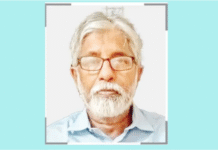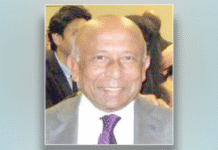
The Covid-19 pandemic has thrown major challenges to public policy framing. While responses of the states to the pandemic differed significantly, there have been some common lessons: that existence of an effective public healthcare system led by competent health professionals, meaningful public engagement and debates in policy framing, and unhindered flow of information are critical elements in confronting this protracted emergency.
At a time faced with unemployment, hunger and uncertainty—when “the new poor” are finding it very difficult to maintain subsistence and clamouring for relief and deserve to be heard, when state authorities are struggling to confront the multifaceted challenges, with an emerging need for harnessing the collective experience and wisdom of all relevant stakeholders including those of health professionals, when there have to be meaningful public discussions, debates and dialogues, and when the state should ensure citizens’ enjoyment of their fundamental rights and access to information—there is a palpable gap in the Bangladesh state’s responses on these counts. These observations were made at a civic dialogue on “fundamental human rights during Covid-19”, organised by Nagorik on June 4, 2021.
 For all latest news, follow The Daily Star’s Google News channel.
For all latest news, follow The Daily Star’s Google News channel.
The participants were deeply concerned that even during this pandemic, human rights and security of the population at large were under threat. Many state actions during the crisis did not fall within the purview of the law. In some instances, even the orders of the supreme judiciary were dismissed with contempt. The webinar heard the lived experiences of three courageous sufferers and a number of activists—events and accounts that had been also covered by various newspapers.
Journalist Ariful Islam Rigan narrated his harrowing experience of having been picked up at midnight and sentenced to a year’s imprisonment by a mobile court in Kurigram in mid-March 2020 (DT, 14.03.2020). Rigan alleged that eight to nine people, some carrying rifles and pistols, barged into his house after breaking the gate and started beating him up. “You have been bothering us for the last few days,” he was told by his captors. Rigan claimed that they hurled abuses and threatened him with extrajudicial killing. He further claimed he was made to sign a paper while blindfolded. He raised a basic question: “How can a mobile court perform all three functions—bring an allegation against me, investigate it and then sentence me? Isn’t that against the fundamental tenet of justice?”
Mohammad Rahman, a victim of human trafficking returning from Vietnam, shared his experience of being cheated while he sought overseas employment at a cost of Tk 3.8 lakh and the subsequent trauma of not being provided with work and held in illegal detention in the country of his destination. Upon return to Bangladesh, he and his fellow survivors of trafficking had to endure illegal incarceration after completing the quarantine period for “tarnishing the image of the country” and “conspiring against the state and government” while in quarantine (TDS, 03.09.20). The group had to stay 32 days in jail and secured freedom only after the intervention of the High Court Division that served notices on the state asking on what grounds they were detained and kept for more than 15 days under Section 54 of the Code of the Criminal Procedure. “Someone should explain to us why we were imprisoned and why those responsible for our illegal incarceration were not held to account,” he stated.
The linguistic minority leader Sadaqat Khan Fakku highlighted the plight of the camp-dwelling Urdu-speaking Bangladeshis. He lamented that though a High Court verdict in 2008 had reaffirmed the community’s Bangladeshi citizenship, it still remained unprotected from a plethora of insecurities including that of eviction from existing camps without any notice. He claimed that the National Housing Authority made a false claim that it had developed the areas in question in 1995 and subsequently sold them as private plots, which, in reality, have always been under the possession of the community since 1972. Earlier, under an agreement with the International Committee of the Red Cross, the government committed not to evict camp residents unless they were duly rehabilitated. Notwithstanding this arrangement—and in violation of the Supreme Court’s direction to maintain status quo to both the parties (UNB, 16.05.2016) and the subsequent commitment by the Prime Minister assuring the community that they would not be evicted without being rehabilitated (DT, 04.07.2015)—the Dhaka North City Corporation and National Housing Authority began demolishing residential and commercial structures on January 21-23, 2021 (TDS, 22.01.2021). With deep regret, Fakku reported that during the demolition drive, the city mayor refused to abide by the Supreme Court injunction on such evictions (TDS, 26.01.2021). “Where should we seek redress if the Court’s orders are violated by those in positions of authority?” he asked.
In their discussions, the panellists highlighted the violation of the rights of garments workers in securing their rightful claim to enjoy holidays during the last Eid break. They also denounced the use of lethal force against unarmed workers demanding due wages and leave in Bashkhali which led to the deaths of seven workers in April 2021. At a time when the state should have ensured protection of everyone, its decision to shut down sugar and jute mills during the pandemic, throwing tens of thousands of workers without arranging any alternative occupation for them, only reflects a certain degree of apathy to people’s concerns. Non-payment and irregular payment of wages have become a pervasive phenomenon during the pandemic; even some apparel manufacturing companies of A1 category were unable to pay workers for more than a year. The panellists regretted that mainstream trade unions and rights organisations are more concerned about pushing the agenda of their favoured political parties than pursuing general workers’ agenda.
A journalist panellist drew attention to the fact that increasingly, a section of the journalist community is being aligned with powerful corporate and political interests. The recent example of some journalists scrambling for a photo opportunity with a powerful fugitive is a stark example of such aberrations, she noted. In addition, a number of laws including the Special Powers Act, the Official Secrets Act, the Digital Security Act, provisions pertaining to defamation and sedition of the penal code, the Printing Presses and Publications Act and the likes, as well as administrative practices, have often resulted in preventing journalists from securing information, digging out facts and offering impartial reports and analysis. The Covid-19 situation has further aggravated the plight of the journalists, mostly local journalists of different districts. Not only have journalists been deprived of their festival and other bonuses, in many instances, they have also lost their jobs. Cases were cited in which an individual who pursued journalism for 34 years now has to survive by driving auto-rickshaw. Illegal termination of jobs of journalists has been on the rise. While those in leadership positions linked with the establishment continue to thrive, the section of journalists pursuing ethical journalism continues to suffer.
The plight of the health professionals during Covid-19 also featured prominently in the dialogue. A physician panellist from Khulna stated that while doctors play a critical role in any health emergency, it is imperative that the healthcare system is supported by appropriate infrastructure, technically-sound human resources, equipment, technology and an enabling environment of policy and institutional coherence and coordination. Unfortunately, there is a near-absence of all the above factors in Bangladesh. He deplored that instead of invoking the Pandemic Act of 2018 (which accords due role to health professionals including DG Health and Civil Surgeons) and the Disaster Management Act, 2012 (which specifies actions during an emergency), the government’s response is marked by ad-hocism and over-reliance on the administrative and law-enforcement machineries of the state. “If we are serious about combatting the pandemic, then there has to be a sea change in the mental frame of those in charge of the public healthcare system,” noted the panellist.
The Covid-19 pandemic has exposed not only the fault lines of the healthcare system of the country but also of the relationship between the state and the people. In order to tide over the colossal crisis, there is a critical need for a re-ordering of that relationship. One hopes that those at the helm of the state takes into consideration the ground reality with compassion, act in accordance with the constitution and the laws, and harness the collective wisdom and strength of the people in combating the pandemic.
CR Abrar is an academic. Barrister Jyotirmoy Barua is an advocate of the Supreme Court of Bangladesh. And Rezaur Rahman Lenin is an academic activist.











